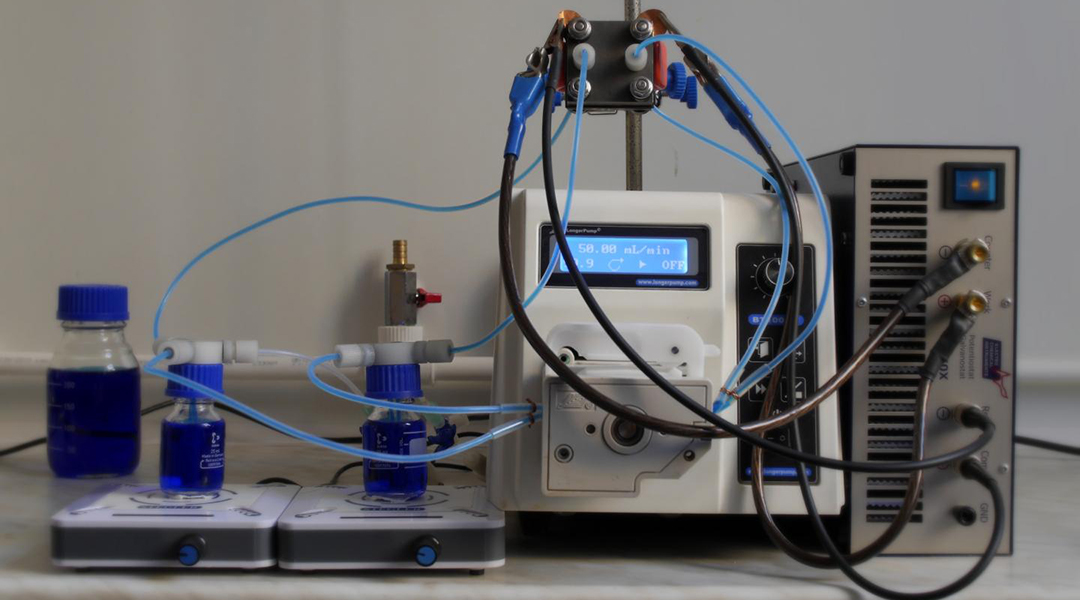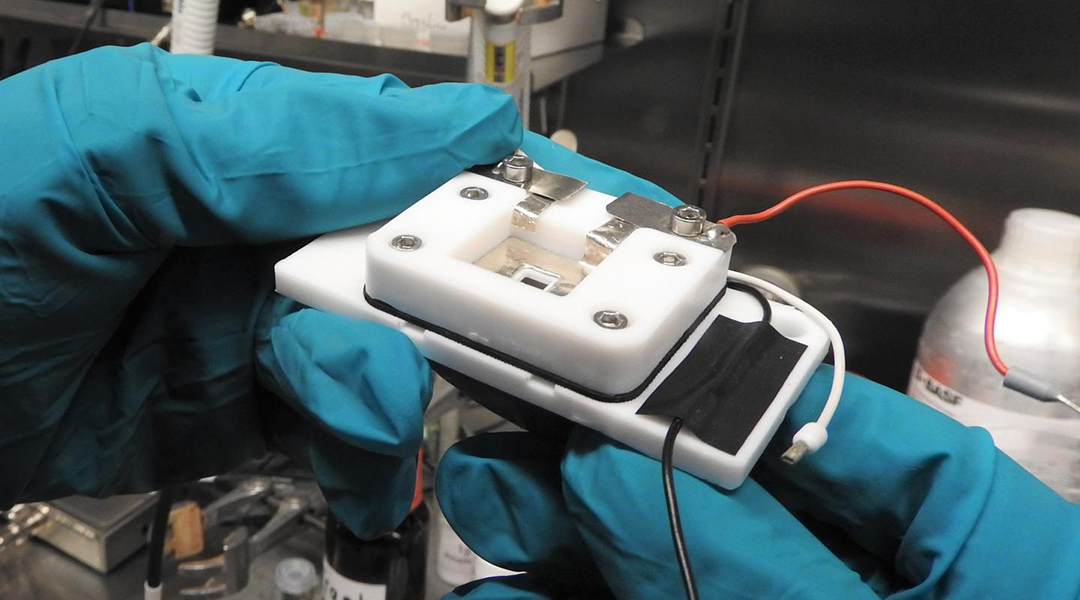A new design for vanadium redox flow batteries could help fundamental research and accelerate commercialization of this energy storage technology.


A new design for vanadium redox flow batteries could help fundamental research and accelerate commercialization of this energy storage technology.

Researchers store energy in red bricks, providing a low-cost battery alternative to power a home.

Inspired by nature, researchers create a new kind of photoelectric generator based on a bacterial ion pump.

Computer simulations provide a better means of optimizing, predicting, and understanding experimental observations in the search for new battery materials.

Researchers created liquid-metal battery that works at room-temperature. It promises more power than today’s lithium-ion batteries and can charge and deliver energy several times faster.

Chemists develop a new technique for observing chemical processes during battery operation.

Researchers design a photo-electrochemical reactor to produce affordable “green” hydrogen.

A “rattling” observed in the crystal structure of cesium lead iodide perovskites is thought to be the long sought-after answer to as to why the material is so unstable.

Researchers explore an alternative, green supercapacitor concept that relies on seawater and carbon fibers derived from waste cotton.

Addressing the negative environmental impacts caused by fossil fuels and conventional refrigerants requires alternative and sustainable cooling solutions.